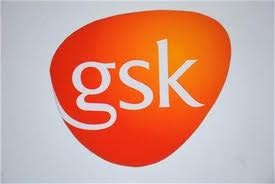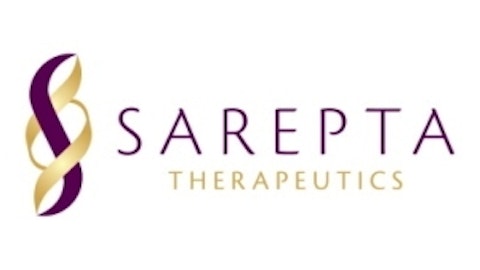LONDON — I’m always searching for shares that can help ordinary investors like you make money from the stock market. However, many people are currently worried that the market could be overheating.
So right now I’m analyzing some of the most popular companies in the FTSE 100, hoping to establish if they can continue to outperform in today’s uncertain economy.
Today I’m looking at pharmaceutical giant GlaxoSmithKline plc (ADR) (LSE:GSK) (NYSE:GSK) to determine whether the shares are still safe to buy at 1,630 pence.
So, how’s business going?
Throughout last year, investors expressed concern over the future of GlaxoSmithKline plc (ADR) (LSE:GSK) (NYSE:GSK) as the company lost the exclusive manufacturing rights to some of its most popular over-the-counter treatments.
However, since last year the company has been working hard to reassure investors and bring new products to market. Indeed, it appears that the company does have a strong pipeline of treatments under development, with six key assets currently under regulatory review within the U.S. and Europe.
In addition, the company is seeking acquisitions to boost its product portfolio. After its purchase of U.S. biotechnology partner Human Genome Sciences last year, GlaxoSmithKline plc (ADR) (LSE:GSK) (NYSE:GSK) has decided to sell its nutritional drinks brands Lucozade and Ribena to raise more cash for strategic acquisitions.
Furthermore, the firm’s management are committed to reducing costs and the company is currently undertaking a “new major change program,” which is targeting cost savings of $1 billion a year by 2016.
Expected growth
Since 2009, GlaxoSmithKline plc (ADR) (LSE:GSK) (NYSE:GSK)’s earnings have fallen a compounded 6.3%. However, thanks to the company’s aggressive cost cutting strategy, many City analysts expect the company to return to growth this year. City forecasts currently predict earnings of 1.16 pounds per share for this year (3% growth) and 1.29 pounds for 2014.
Shareholder returns
GlaxoSmithKline plc (ADR) (LSE:GSK) (NYSE:GSK) is well known for its shareholder returns, and it would appear that the company does not intend to damage this reputation any time soon.
The company currently offers investors a dividend yield of 4.6% — larger than that of its peers in the pharmaceuticals and biotechnology sector, which currently offer an average dividend yield of 4.3%. Additionally, GlaxoSmithKline is aiming to return 1 billion to 2 billion pounds to investors this year by way of a share buyback program.
Valuation
Investors have been please with GlaxoSmithKline’s performance so far this year and as a result the company is currently trading at a premium to its peers. GlaxoSmithKline currently trades at a historic P/E of 16.7, while its peers trade on an average historic P/E of around 16.2.
Foolish summary
So overall, based on the company’s predicted growth rate, higher than average dividend yield and share buyback program, I believe that GlaxoSmithKline still looks safe to buy at 1,630 pence.
More FTSE opportunities
As well as GlaxoSmithKline, I am also positive on the five FTSE shares highlighted within this exclusive wealth report.
Indeed, all five opportunities offer a mix of robust prospects, illustrious histories and dependable dividends, and have just been declared by the Fool as “5 Shares You Can Retire On”!
Just click here for the report — it’s free.
In the meantime, please stay tuned for my next FTSE 100 verdict.
The article Is It Still Safe to Buy GlaxoSmithKline? originally appeared on Fool.com and is written by Rupert Hargreaves.
Fool contributor Rupert Hargreaves has no position in any stocks mentioned. The Motley Fool recommends GlaxoSmithKline. Try any of our Foolish newsletter services free for 30 days. We Fools may not all hold the same opinions, but we all believe that considering a diverse range of insights makes us better investors. The Motley Fool has a disclosure policy.
Copyright © 1995 – 2013 The Motley Fool, LLC. All rights reserved. The Motley Fool has a disclosure policy.





